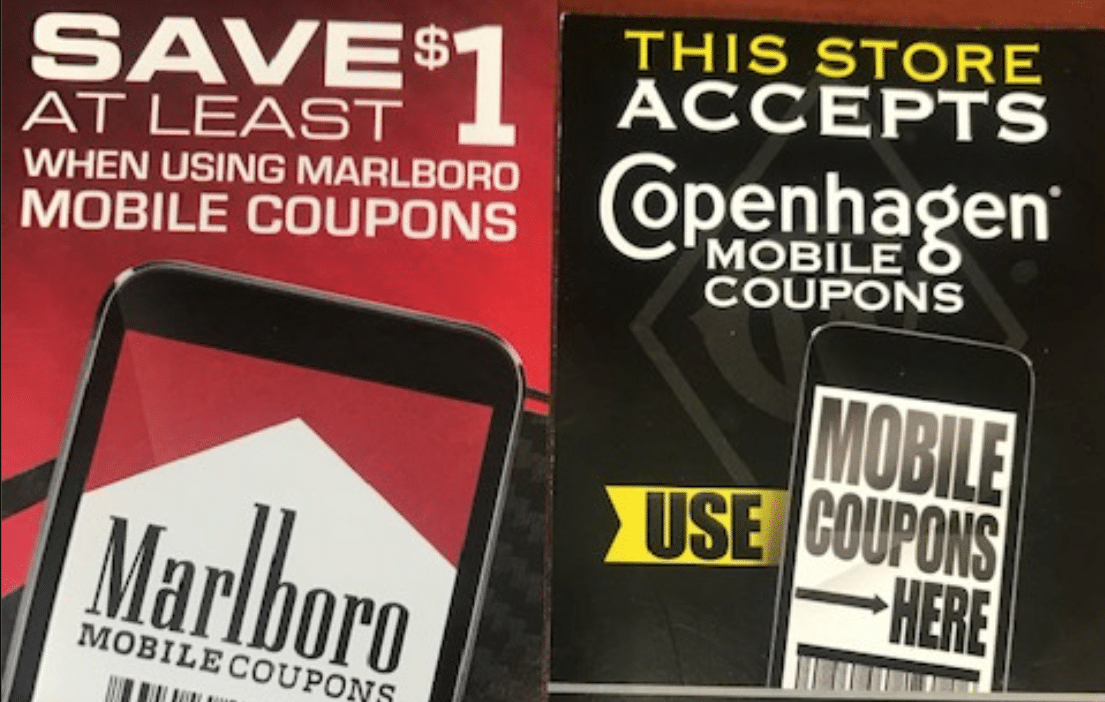
Critics who don’t get the point of coupons say prices should just be lowered instead. But there’s new evidence that coupons can encourage a purchase where mere lower prices can’t.
Just ask an ex-smoker.
In a particularly extreme example of good news/bad news, a new research study has found that coupons for tobacco products can be so effective, that they can encourage those who’ve sworn off smoking to start up again.
And if you’re not a smoker and think the study’s findings won’t impact you – just wait.
“Cigarette Coupon Receipt and Smoking Relapse by Duration of Smoking Abstinence,” by researchers at the Georgia State University School of Public Health, is featured in the September edition of the American Journal of Preventive Medicine. The study’s authors studied survey results from more than 5,000 former smokers and found that those who had received coupons for cigarettes were twice as likely to relapse as those who didn’t. Recent quitters were particularly vulnerable, using coupons to buy cigarettes at a greater rate than those who had abstained from smoking for more than a year.
“We were surprised by the magnitude of the effect,” lead author Jidong Huang said in a statement. “It really shows that smokers who have quit within the past year are the most vulnerable to relapse, and it implies that policies that prohibit the distribution of tobacco coupons could help more people succeed in quitting.”
A number of U.S. cities, counties and now three states currently prohibit the acceptance of coupons on tobacco products. New Jersey was the first to impose a statewide ban back in 2020, soon followed by New York and Rhode Island. New Jersey’s measure “eliminates a manipulative marketing ploy used by these companies to keep our youth hooked on their products,” bill co-sponsor Senator Patrick Diegnan said at the time.
“Most people aren’t aware that direct mail and email marketing are among the most important ways for tobacco companies to reach current and potential smokers,” Huang said. He and his coauthors said their study is the first of its kind to gauge the effect of coupons on recent and long-term quitters. Earlier studies have found that coupons were effective not only in encouraging current smokers to keep smoking, but they could even entice nonsmokers to start.
While tobacco use has been declining overall, the new study’s authors point out that smoking remains America’s leading cause of preventable deaths, with nearly 70% of smokers saying they’re interested in quitting. So their main concern is reducing tobacco use, and discouraging anything – like coupons – that might prevent people from giving it up.
But their research could potentially have broader implications for other not-so-good-for-you products. If coupons work so well that they can encourage recent nonsmokers to light up again, what other products could manufacturers tempt recent quitters to buy by issuing coupons? Maybe cookie and candy makers can issue a flood of coupons in January, to drum up some business from those who swore off sweets as a New Year’s resolution. Maybe your shopping history shows you used to buy a lot of sugary soda but recently stopped – a well-timed personalized coupon could get you buying again.
The new study didn’t take things that far. But the authors warn that it’s good to be aware of your own vulnerabilities when it comes to coupons. Not only should former smokers be cautious if they receive cigarette coupons, but “physicians and smoking cessation counselors should warn people who have recently quit about the impact that marketing materials can have on their efforts to quit,” Huang suggested.
It can be difficult to kick a bad habit. But if you’re a bargain hunter, it can also be difficult to pass up a good deal. While coupons can be tempting, these researchers would advise that it’s only money you’re saving – while saving your health, is priceless.
Image source: CounterTobacco.org










